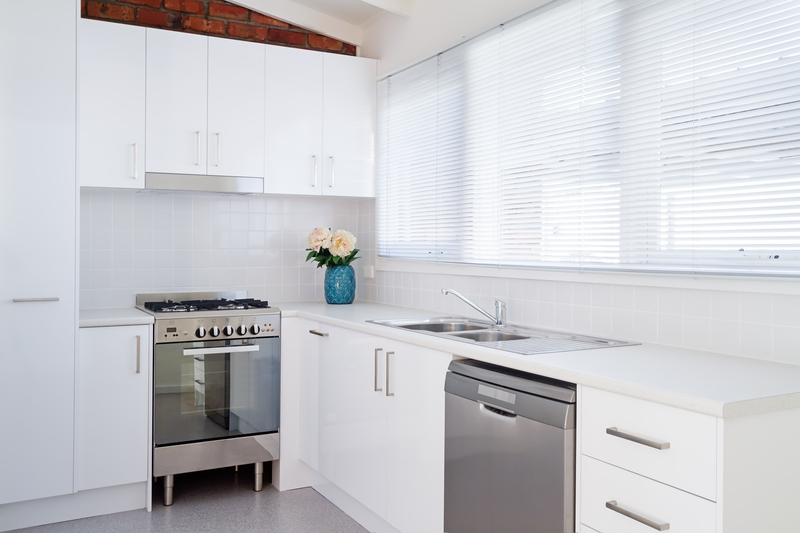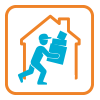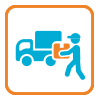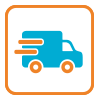Harness the Power of Planning for Stress-Free Moves
Posted on 19/06/2025
Harness the Power of Planning for Stress-Free Moves
Moving to a new home or office can be both an exciting and daunting task. Whether you're transitioning to a larger space, downsizing, or relocating for career opportunities, a move always involves multiple moving parts. Harnessing the power of planning for a stress-free move can make the process not just manageable, but even enjoyable. Proper organization, savvy tips, and strategic planning are your best allies in ensuring a smooth relocation process.

Why Is Move Planning So Important?
Planning ahead is not just a suggestion; it's essential for any successful move. Without a clear plan, your moving experience can quickly become overwhelming--unexpected costs, misplaced items, stressful time crunches, and miscommunications abound. On the other hand, leveraging thorough preparation allows you to minimize surprises, stay on budget, save time, and protect your precious belongings.
- Organization: Efficient planning lets you keep track of what needs to be done and when.
- Peace of Mind: You're less likely to forget crucial tasks or important belongings.
- Cost Control: Proper budgeting prevents overspending and helps you find affordable moving solutions.
- Time Efficiency: Avoid last-minute rushes by spacing out packing and logistical arrangements.
- Protection: Safeguard your valuables by preparing for transportation and handling in advance.
Step-By-Step Guide to a Stress-Free Move
1. Start Planning Early
The key to a successful move is beginning the planning process as early as possible. As soon as you have a moving date, start organizing--ideally at least eight weeks in advance.
- Set a Timeline: Break your move into manageable phases--one week for decluttering, two weeks for packing, and so on.
- Book Your Movers: Good moving companies get booked quickly, especially during peak seasons. Secure your preferred date early.
2. Declutter and Downsize
Clutter adds unnecessary complication to any move. Use this opportunity to sift through your belongings and get rid of items you no longer need. The less you move, the less you'll have to pack, transport, and unpack.
- Sort by Categories: Group similar items together before deciding what to keep, donate, or throw away.
- Hold a Sale: Consider hosting a garage sale or using online marketplaces for items in good condition.
- Donate Gently Used Goods: Many charities accept furniture, clothing, and non-perishables.
3. Create a Moving Checklist
A comprehensive checklist is one of the most effective planning tools for stress-free moving. Organize your list by timeframes (weekly, daily, or hourly as moving day approaches).
- Notify utility services of your move and arrange disconnections/connections.
- Change your address with important institutions (banks, insurance companies, postal service).
- Arrange for school and medical record transfers if needed.
- Gather essential documents and keep them in a labeled folder.
- Mark important dates such as cleaning appointments and moving truck bookings.
4. Budget Wisely: Manage Your Finances
Relocating doesn't have to break the bank. By budgeting early, you can compare quotes and choose the most cost-effective solutions for moving, storage, and delivery.
- Get Multiple Quotes: Don't settle for the first company you find. Compare rates and services.
- Factor in All Costs: Include packing materials, pet transport, insurance, and tipping for movers.
- Track Expenses: Keep receipts and records for potential tax deductions.
5. Pack with Purpose and Care
Effective packing is foundational to the power of moving organization. When done systematically, it ensures your items arrive safely, and that the unpacking process is stress-free.
- Label Everything: Use clear, bold labels on each box with detailed descriptions of contents and destination room.
- Pack Smart: Use sturdy boxes, bubble wrap, and newspaper. Avoid overfilling containers.
- Prepare an Essentials Box: Pack a day-one box with toiletries, snacks, chargers, medications, bedding, and clothes.
- Color Code: Assign a color to each room and label boxes for easy sorting.
- Inventory List: Keep a digital or paper list of boxes and their contents for easy cross-referencing.
6. Communicate Clearly with Everyone Involved
Whether you're working with a professional moving company, enlisting friends and family, or both, communication is critical. Make sure everyone is on the same page regarding schedules, roles, and expectations.
- Share Your Plan: Send your moving timeline and key action items to your helpers.
- Confirm Details: Double-check reservations, service providers, and deliveries in advance.
- Emergency Contacts: Share necessary phone numbers in case of last-minute changes or delays.
7. Prepare for Moving Day
The day before your scheduled move, do a final walkthrough. Check closets, cabinets, and storage areas to ensure nothing has been missed. Prepare your pathway so movers have clear access to all rooms and exits.
- Take Photos: Document your belongings, especially fragile or valuable ones, for insurance purposes.
- Protect Floors and Walls: Lay down rugs or cardboard to prevent damage on exit and entry routes.
- Greet the Movers: Be available early to walk them through your plan and answer questions.
- Confirm Utilities: Make sure both old and new properties have functioning water, gas, and electricity on move-in day.
8. Unpack Strategically and Settle In
Once you arrive at your new home, resist the urge to unpack all at once. Prioritize necessities and work systematically through your organized boxes.
- Start with Essentials: Set up beds, basic kitchen items, and bathrooms first.
- Room by Room: Unpack one space at a time to stay organized and avoid clutter.
- Organize as You Go: Take this chance to design your space thoughtfully and efficiently.
- Recycle Packing Materials: Dispose of or donate boxes and packing supplies responsibly.
Expert Tips to Simplify Your Move
- Utilize Technology: Apps like Sortly or TaskRabbit can help with inventory and labor management.
- Enlist Professional Help: For specialty items (pianos, artwork, safes), hire movers with niche expertise.
- Schedule Overlaps: If possible, maintain access to both old and new residences for at least 24 hours during the move to ease transitions.
- Child and Pet Care: Arrange for childcare or pet sitting so you can focus on the move without distractions.
- Stay Hydrated and Take Breaks: Moving is physically demanding; prioritize regular rest and snacks.
- Prepare for the Unexpected: Weather changes, delays, and traffic can impact moving day plans. Build in buffer times and contingency plans.
Common Mistakes to Avoid When Planning Your Move
Despite best intentions, many people fall into common moving pitfalls that amplify stress. Learning from these missteps can keep your move smooth and hassle-free.
- Procrastination: Waiting to pack and organize until the last minute almost guarantees a chaotic move.
- Insufficient Supplies: Running out of boxes, tape, or bubble wrap can grind packing to a halt.
- Improper Packing: Skimping on padding or overfilling boxes risks serious damage to your belongings.
- Ignoring Insurance: Always check your mover's insurance policy limits and supplement if necessary for high-value items.
- Poor Labelling: Failing to clearly mark boxes increases the difficulty of unpacking and locating essentials.
- Overlooking the Essentials Box: Forgetting to pack daily necessities separately leaves you scrambling on your first night.
Benefits of a Well-Planned Move
The advantages of embracing powerful planning for stress-free moves are far-reaching:
- Reduced Stress: Knowing what comes next allows you to enjoy the process and even look forward to your new space.
- Cost Savings: Avoiding costly errors and late fees helps you stay within budget.
- Time Management: A detailed plan means no time wasted--your move stays on track.
- Less Physical and Emotional Strain: Staying organized prevents burnout and frustration.
- Smoother Settling In: Efficient unpacking and setup help you feel at home sooner.

Final Thoughts: Transform Your Move with Incredible Planning
A successful move is rooted in strategy, foresight, and organization. By harnessing the power of planning for stress-free moves, you take control of the process, reduce unnecessary complications, and create space to enjoy new beginnings. Whether you're moving across town or to an entirely new city, these effective planning strategies will help you transition with confidence and calm.
Start early, stay organized, communicate openly, and embrace the journey! You'll be surprised at how a proactive approach can transform even the most complex move into an opportunity for growth and joy.
FAQs About Stress-Free Move Planning
How far in advance should I start planning my move?
Ideally, begin organizing your move at least 8 weeks before moving day. This gives you plenty of time to declutter, source moving services, and tackle tasks in manageable segments.
What should my essentials box contain?
Pack items you'll need for your first 24-48 hours: toiletries, medications, clothing changes, phone chargers, documents, basic kitchenware, and pet supplies.
Is it better to move during the week or weekend?
Weekday moves are often less expensive, with better availability for movers and utility services. However, consider your own work and family schedules.
Should I hire professional movers or DIY?
For complex or long-distance moves, professional movers save time, reduce risk, and provide insurance. For short, local moves with fewer items, DIY can save money--just make sure to carefully plan and recruit reliable helpers.
In summary, the power of well-planned moving empowers you to overcome common pitfalls and relocate with ease. Happy moving!
```Latest Posts
Conquer Pre-Move-Out Cleaning with These Proven Tips
Harness the Power of Planning for Stress-Free Moves
Pack Smarter, Not Harder: Tips for Moving










